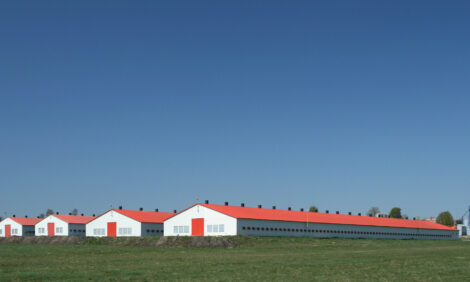



Georgia Poultry Farmers Face Russian Cutbacks
GEORGIA STATE - The state's poultry industry is bracing for a 20 percent cut in exports to its largest overseas customer, Russia.Global Atlanta reports that Russia is expected to announce on 1 December that it is cutting the amount of chicken it buys from the US, said Jim Sumner, president of the US Poultry & Egg Export Council (USAPEEC), headquartered in Stone Mountain.
He predicts US poultry exports to Russia in 2009 will drop to 750,000 metric tons, down from the 931,000 tons allowed under current quotas.
"We're looking at our industry cutting back on production," said Mr Sumner, who recently returned from a business trip to Russia.
Russia's reduction in poultry imports is aimed at increasing that country's domestic production.
"We can replace these quantities with our own production," Russian Agriculture Minister, Alexei Gordeyev, said at a government meeting on 17 November, according to Reuters news service.
The Russian reductions will hit an industry that already was having a tough year, said John McKissick, an agricultural economist at the University of Georgia. Feed prices jumped in 2008, but market prices for white meat, mostly sold domestically, were soft, Mr McKissick said.
However, prices for dark meat, the chief export product, were up, he added. "That was the shining star for the industry - exports," he said. "Any kind of reductions in exports will be harmful."
Georgia led the US in poultry exports from January to September 2008, shipping out 539,395 metric tons valued at $601.8 million, according to USAPEEC. Georgia poultry exports to Russia during the same period were 33,888 tons, valued at $37.3 million.
Russians eat a lot of chicken soup and the country is known for its Chicken Kiev dish, Mr Sumner said. Fried chicken is also getting popular there, he added. American chains such as Kentucky Fried Chicken have stores in Russia. There is also a Russian fried chicken chain called Rosticks, he added.
Reduced poultry exports to Russia could hurt North Georgia's economy, said Rajeev Dhawan, director of Georgia State University's Economic Forecasting Center.
"In the past few months we have seen a sharp retrenchment in the price of oil, which gives the poultry farmers a break on feed costs," Dr Dhawan said in his most recent quarterly economic forecast for the state of Georgia. "But the sinking ruble and oil prices also make for a much reduced demand from Russian consumers. This turn of events doesn't bode well for the banks in North Georgia, which service these agribusinesses and their suppliers, who will have a reduced demand for business loans."
Mr Sumner is optimistic, however, that poultry producers will be able to make up the Russian losses by increasing exports to other markets such as Africa, Central America, China, the Caribbean and Mexico.
"Fortunately, as we see Russia's demand for poultry imports decreasing, we see the demand in many other markets - especially China - dramatically increasing," said Mr Sumner.
Most Georgia poultry farmers work under contract for large companies such as Pilgrim's Pride Corp., which acquired Goldkist Inc. in 2006.
When the big companies cut production, poultry farmers make less money because they have fewer birds to raise.
But there are hopeful signs, Mr McKissick told Global Atlanta. "Grain prices are coming down," he said. "If the industry continues to cut back some on production and maintains relatively high prices, then they may have a better year in 2009 than they had in 2008."








